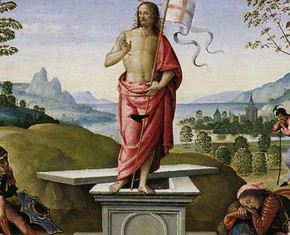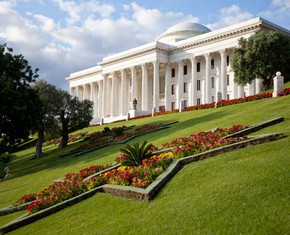The views expressed in our content reflect individual perspectives and do not represent the authoritative views of the Baha'i Faith.
The Baha’i Faith has a remarkable teaching about the purpose of religion, which lets us know when it’s better to do without it.
Abdu’l-Baha explains:
… religion must be the mainspring and source of love in the world, for religion is the revelation of the will of God, the divine fundamental of which is love. Therefore, if religion should prove to be the cause of enmity and hatred instead of love, its absence is preferable to its existence. – Abdu’l-Baha, The Promulgation of Universal Peace, p. 315.
This statement is remarkable, not just because Abdu’l-Baha was clearly a great lover of religion, but also because he and his father Baha’u’llah, the prophet-founder of the Baha’i Faith, accorded such importance to religion in the collective life of humanity. They both taught that we needed better religion and more of it. For instance, Baha’u’llah wrote:
Religion is verily the chief instrument for the establishment of order in the world and of tranquility amongst its peoples. The weakening of the pillars of religion hath strengthened the foolish and emboldened them and made them more arrogant. Verily I say: The greater the decline of religion, the more grievous the waywardness of the ungodly. – Baha’u’llah, Tablets of Baha’u’llah, pp. 63-64.
According to this statement, the normal response to human waywardness would be to strengthen religion. This is the general thrust of the Baha’i Faith, where religion represents a body of ideas and practices that have a net positive impact on the world.
Nonetheless, we all know that religion itself can be the cause of waywardness. Few modern people would disagree with that assertion, because most of us have seen for ourselves how religion can be used to inflict harm on others. But how could we articulate that idea in religious terms? How can religion investigate its own limits?
Baha’u’llah and Abdu’l-Baha do this by assigning a purpose to religion, a standard against which it is tested:
The purpose of religion as revealed from the heaven of God’s holy Will is to establish unity and concord amongst the peoples of the world; make it not the cause of dissension and strife. – Ibid., p. 129.
At this point, it’s worth remembering something important about the concept of purpose. The purpose of a thing exists outside of it, is different from it, but also defines it and gives it shape. For example, feet find their purpose in walking. A piano has its purpose in music. Purpose is both inside and outside. With that in mind, consider this:
Religious teachings are like a course of treatment having for its purpose the cure and healing of mankind. If the only outcome of a course of treatment should be mere diagnosis and fruitless discussion of symptoms, it would be better to abandon and abolish it. In this sense the absence of religion would be at least some progress toward unity. – Abdu’l-Baha, The Promulgation of Universal Peace, p. 394.
So for Baha’is, religion finds its purpose in “the cure and healing of mankind.” This is what defines it and gives it shape. So if religion is abused or corrupted or ineffective, the Baha’i teachings say, other methods might be more useful to achieve that cure and healing:
… the divine religions, the holy precepts, the heavenly teachings, are the unassailable basis of human happiness, and … the peoples of the world can hope for no real relief or deliverance without this one great remedy. This panacea must, however, be administered by a wise and skilled physician, for in the hands of an incompetent all the cures that the Lord of men has ever created to heal men’s ills could produce no health, and would on the contrary only destroy the helpless and burden the hearts of the already afflicted. – Abdu’l-Baha, The Secret of Divine Civilization, p. 99.
Abdu’l-Baha calls for a wise and skilled physician to heal the world’s ills. In the context of Baha’u’llah’s writings, this certainly refers to God’s prophets and messengers—but he also seems to mean any one of us. The cures these holy figures bring can be administered well, or they can be administered badly. It depends on a person’s skill and wisdom. If we know how to use religion effectively, then we may also know when it is more effective to make do without religion. With this metaphor, Abdu’l-Baha touches upon spiritual qualities that may have their home in religion, but can also operate without it if need be.
















Comments
Sign in or create an account
Continue with Googleor